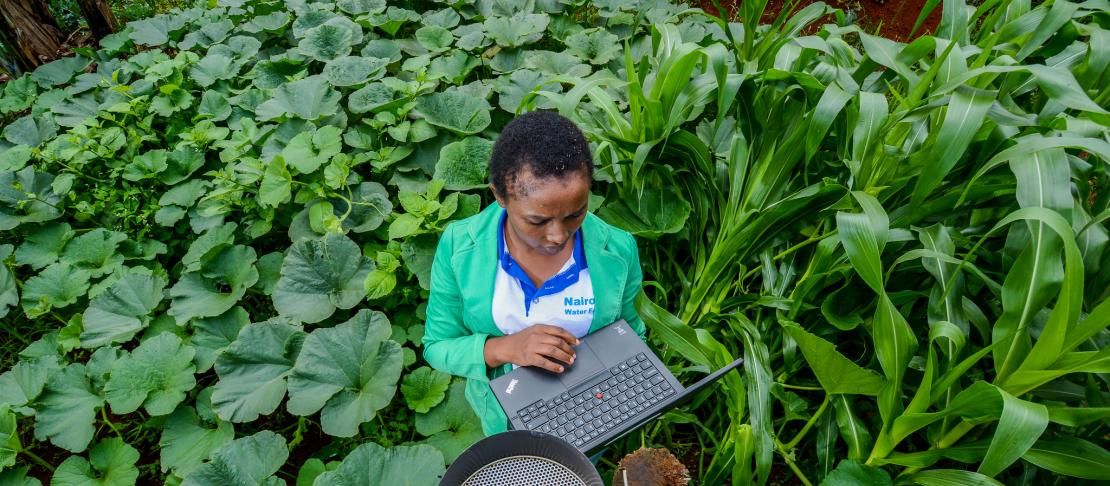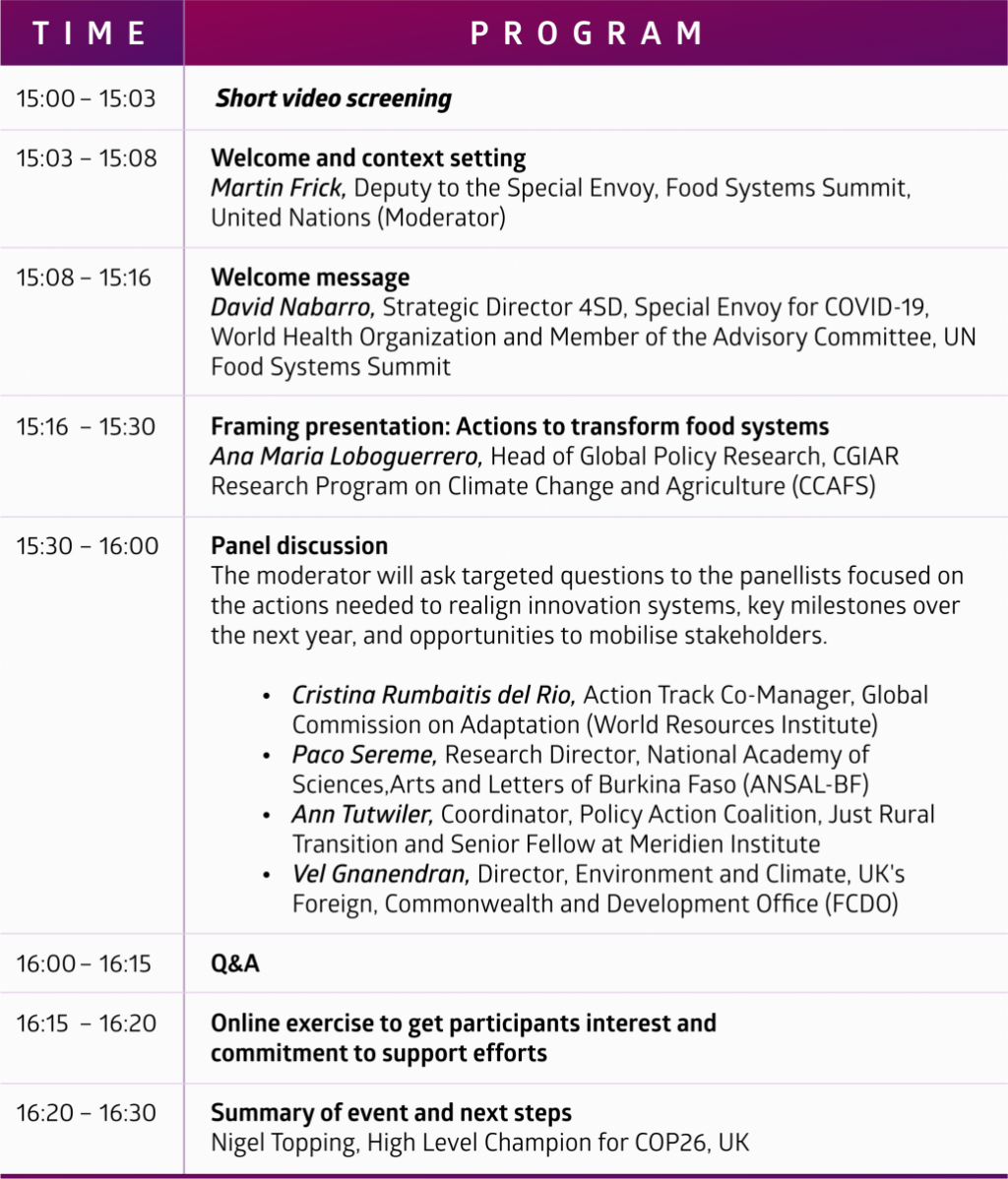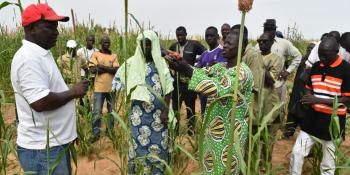Transforming agriculture and food innovation systems to win the Race to Zero

The CGIAR Research Program on Climate Change, Agriculture and Food Security (CCAFS) hosted this ‘Race to Zero’ dialogue event in partnership with the UK Foreign, Commonwealth and Development Office (FCDO).
Stakeholders drawn from across our food systems—farmers, consumers, policymakers, researchers, activists and more—attended this event to reach consensus on priority policies and solutions to drive a more ambitious climate agenda and win the ‘Race to Zero’.
The event supports the Just Rural Transition (JRT) initiative, launched at the 2019 UN Climate Action Summit. The JRT brings together governments, companies, civil society, farmers groups and indigenous people to support a growing global ‘community of purpose’ that hopes to halt the rapid degradation of nature, and refocus our collective efforts toward sustainable development for people and the planet.
Background
Our food systems—made up of worldwide agriculture and global food supply chains—contribute around a quarter of our total Greenhouse Gas Emissions every year.
Based on current trends, we will not achieve the goal of limiting global temperature rises to 2°C, as global leaders committed to through the Paris Climate Agreement. While all the sectors of our economies need to do their bit to meet this target, our food systems in particular need to make a big contribution. So far, they are not.
There has been massive investment in ecosystems of innovation to promote ‘climate-smart’ ways of producing, distributing and consuming food. These are helping to make over 500 million small scale farmers more resilient to the effects of climate change, delivering greater food security for all. But food systems must scale these innovations to accelerate our 'Race to Zero' carbon emissions, a crucial part of the equation in limiting climate change.
What are the ‘Race to Zero’ dialogues?
The #RacetoZero Dialogues showcased global support for policies and projects that will set us on a path to a global economy with net zero carbon emissions. These ten pathways should be seen as the ‘lanes’ of the racetrack to the future. Each sector needs to run in its own lane—with its own opportunities and challenges—so that, together, we can reach the finish line.
Find out more about the Race to Zero
Program and Speakers

.png)




